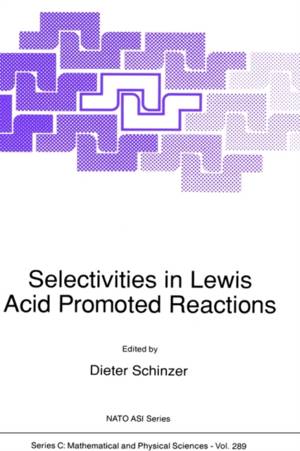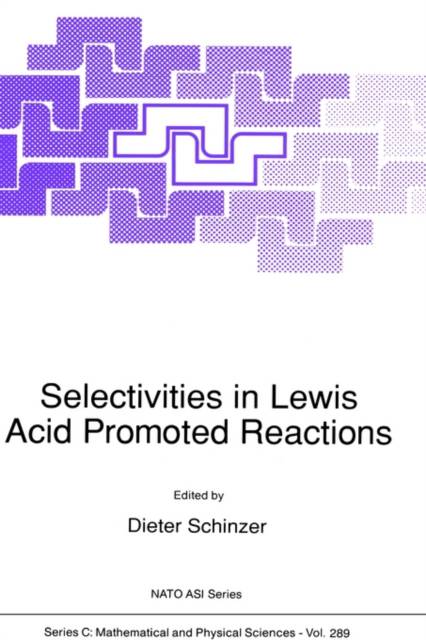
- Afhalen na 1 uur in een winkel met voorraad
- Gratis thuislevering in België vanaf € 30
- Ruim aanbod met 7 miljoen producten
- Afhalen na 1 uur in een winkel met voorraad
- Gratis thuislevering in België vanaf € 30
- Ruim aanbod met 7 miljoen producten
Zoeken
Selectivities in Lewis Acid Promoted Reactions
€ 335,95
+ 671 punten
Omschrijving
The ASI workshop on "Selectivities in Lewis Acid Promoted Reactions" held in the Emmantina-Hotel in Athens-Glyfada, Greece, October 2-7, 1988 was held to bring some light into the darkness of Lewis acid induced processes. As such the workshop reflects some current trends in organic synthesis, where Lewis acids are becoming a powerful tool in many different modern reactions, e.g. Diels-Alder reactions, Ene reactions, Sakurai reactions, and in general silicon and tin chemistry. The objective of this meeting was to bring together most of the world experts in the field to discuss the major reactions promoted by Lewis acids. Organic synthesis will play a major role in this book connected with some fundamental mechanistic work on allylsilane and -tin chemistry. Both natural product synthesis and unnatural molecules are presented in the chapters. The book presents all the 15 invited lectures and the contributions of 15 posters. I am confident that the material presented in this book will stimulate the chemistry, which has been discussed on our meeting, around the world. The meeting and the book were only possible through a grant of the NATO Scientific Affairs Devision and financial support by the following companies: Kali Chemie (Hannover, W-Germany), E. Merck (Darmstadt, W-Germany), Sandoz (Basel, Switzerland), Schering (Berlin, W-Germany).
Specificaties
Betrokkenen
- Uitgeverij:
Inhoud
- Aantal bladzijden:
- 333
- Taal:
- Engels
- Reeks:
- Reeksnummer:
- nr. 289
Eigenschappen
- Productcode (EAN):
- 9780792304524
- Verschijningsdatum:
- 30/09/1989
- Uitvoering:
- Hardcover
- Formaat:
- Genaaid
- Afmetingen:
- 160 mm x 247 mm
- Gewicht:
- 680 g

Alleen bij Standaard Boekhandel
+ 671 punten op je klantenkaart van Standaard Boekhandel
Beoordelingen
We publiceren alleen reviews die voldoen aan de voorwaarden voor reviews. Bekijk onze voorwaarden voor reviews.










